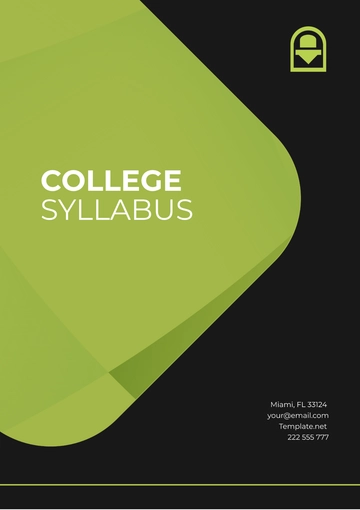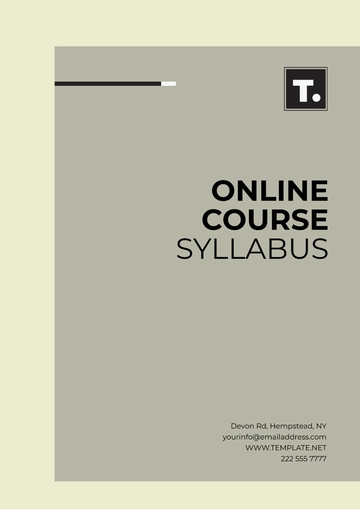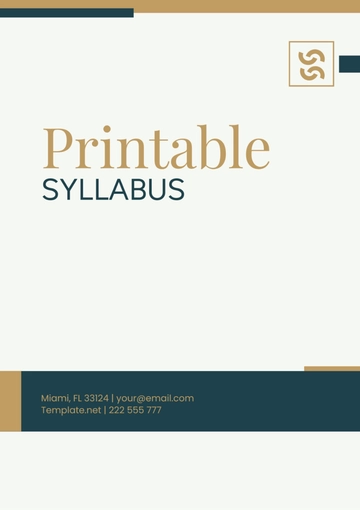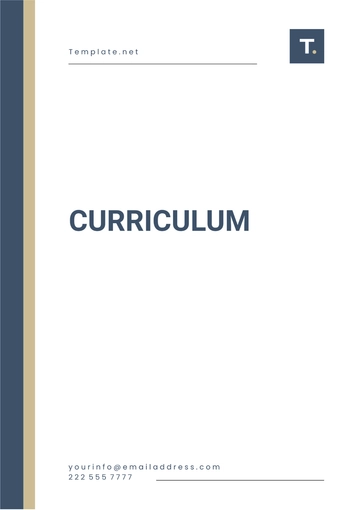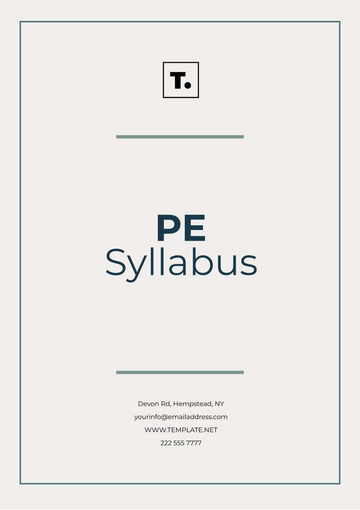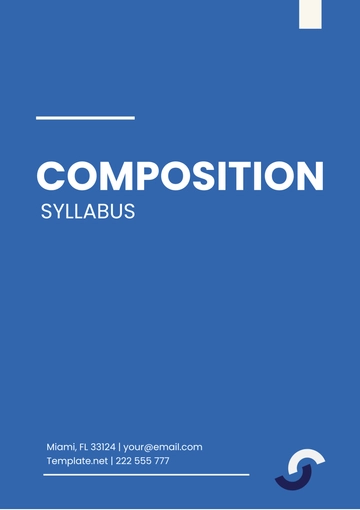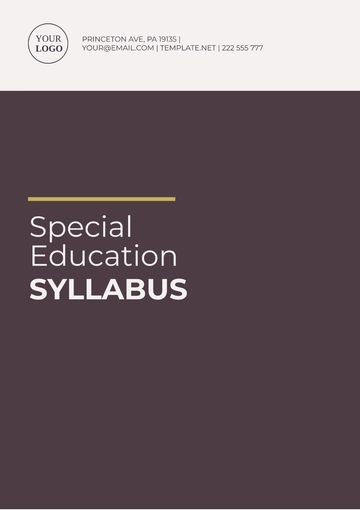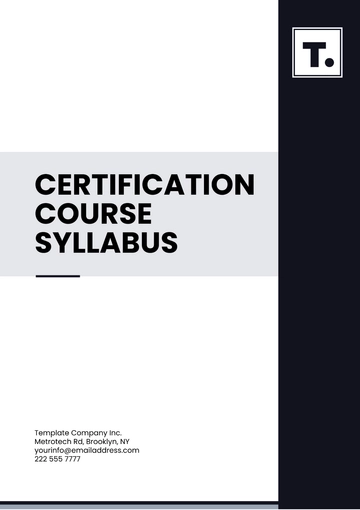Free Intercultural Communication Syllabus

Intercultural Communication Course
Course Title | [COURSE TITLE] |
Course Code | [COURSE CODE] |
Instructor Name | [YOUR NAME] |
[YOUR EMAIL] | |
Office Hours | [OFFICE HOURS] |
Office Location | [OFFICE LOCATION] |
Office Time | [OFFICE TIME] |
1. Course Description
Intercultural Communication explores the complexities of communication between individuals from diverse cultural backgrounds. This course investigates how cultural differences influence verbal and nonverbal communication patterns, perception, conflict resolution, and identity negotiation. Through theoretical frameworks, case studies, and practical exercises, students will develop the knowledge and skills necessary for effective intercultural communication in personal, professional, and global contexts.
2. Instructor Information
Instructor: [YOUR NAME]
Contact Info: [YOUR EMAIL]
Organization: [YOUR COMPANY NAME]
3. Learning Objectives
Understand the fundamental theories of intercultural communication.
Analyze cultural differences and their impact on the communication process.
Develop effective communication strategies to navigate cultural differences.
Apply intercultural communication skills in real-life contexts.
Reflect on one’s own cultural biases and their influence on communication.
4. Course Schedule
Week | Topic | Reading |
|---|---|---|
1 | Introduction to Intercultural Communication | Adler & Elmhorst: Ch. 1 |
2 | Understanding Culture | Samovar et al.: Ch. 1-2 |
3 | Cultural Dimensions | Samovar et al.: Ch. 3 |
4 | Verbal Communication Across Cultures | Adler & Elmhorst: Ch. 3 |
5 | Nonverbal Communication | Adler & Elmhorst: Ch. 4 |
6 | Identity and Intercultural Communication | Samovar et al.: Ch. 4-5 |
7 | Intercultural Conflict Resolution | Samovar et al.: Ch. 6 |
8 | Intercultural Relationships | Adler & Elmhorst: Ch. 5 |
5. Required Reading and Materials
Samovar, L.A., Porter, R.E., & McDaniel, E.R. (2012). Intercultural Communication: A Reader. Cengage Learning.
Lustig, M.W., & Koester, J. (2018). Intercultural Competence: Interpersonal Communication Across Cultures. Pearson.
6. Assignments and Assessments
Intercultural Communication Theory Essay.
Cultural Analysis Presentation.
Reflection Journal Entries.
Cross-cultural Interview Report.
Final Exam.
7. Course Policy
Attendance and active participation are expected in every class.
All assignments should be submitted on or before the due date.
Academic integrity should be upheld at all times.
Respect for diversity and inclusivity should be maintained in class discussions.
Remarks that are not constructive or inappropriate are not tolerated.
8. Grading Policy
Category | Percentage |
|---|---|
Class participation | 20% |
Group Presentations | 15% |
Assignments | 30% |
Final project | 35% |
9. Disclaimer
The syllabus, as it currently stands, may be subject to alterations in the future. If and when these alterations are made, they will not be enacted without prior communication. This communication will take place mainly through emails sent to your registered email address, but the changes will also be further discussed and explained during class hours to ensure understanding.
- 100% Customizable, free editor
- Access 1 Million+ Templates, photo’s & graphics
- Download or share as a template
- Click and replace photos, graphics, text, backgrounds
- Resize, crop, AI write & more
- Access advanced editor
Discover the ultimate solution for crafting dynamic intercultural communication syllabi with Template.net's Intercultural Communication Syllabus Template. This meticulously designed resource is fully editable and customizable, empowering educators to tailor their curriculum effortlessly. Seamlessly integrate diverse perspectives and cultural nuances, all editable in our AI Editor Tool for unparalleled ease and efficiency.


